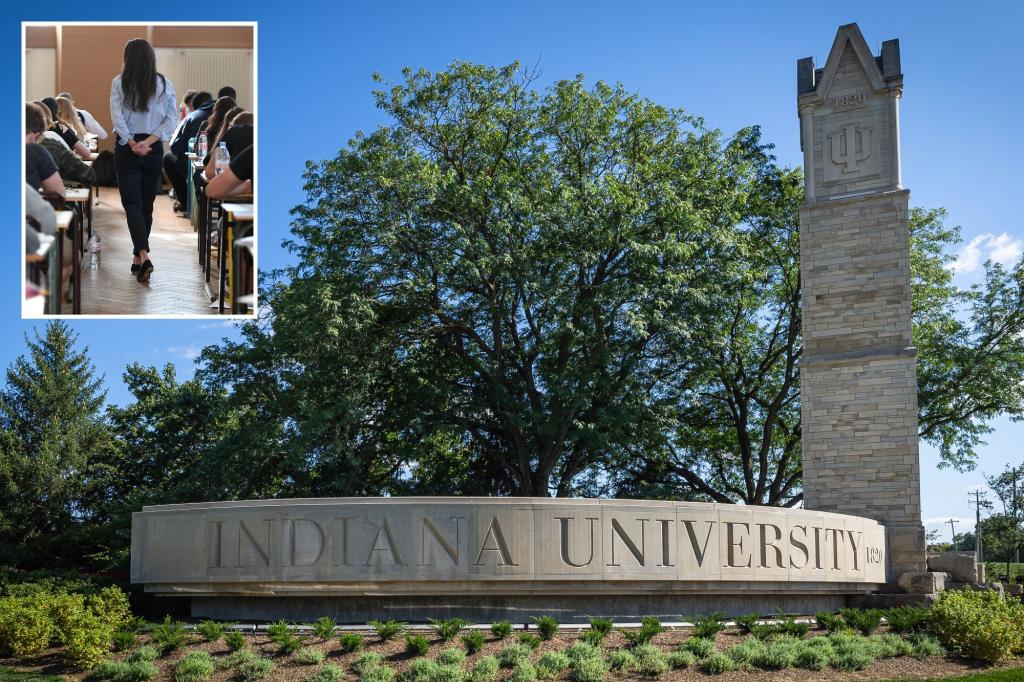Paragraph 1: Introduction – The Contested Terrain of Identity Politics in Higher Education
The landscape of higher education is increasingly marked by debates surrounding identity, diversity, and inclusion. These discussions, often complex and emotionally charged, delve into the power dynamics between different social groups, exploring concepts like privilege, oppression, and intersectionality. While proponents argue that these conversations are crucial for fostering empathy, understanding, and social justice, critics express concerns about the potential for divisiveness, oversimplification, and the imposition of specific ideological frameworks. The case of Indiana University’s "Understanding Diversity in a Pluralistic Society" course provides a lens through which to examine these tensions, highlighting the challenges and complexities of navigating identity politics in the academic setting.
Paragraph 2: Indiana University’s Diversity Course and the Categorization of Identity
At the heart of the controversy surrounding Indiana University’s diversity course lies a framework that categorizes individuals into "dominant" and "subordinate" groups based on characteristics such as race, sex, religion, and sexual orientation. According to reports, the course materials identify "heterosexual, White, able-bodied people, Christian, and Men" as belonging to the "dominant" group, inherently associated with "social oppression." Conversely, groups such as LGBTQ individuals, women, and religious and ethnic minorities are classified as "subordinate," subject to this oppression. This categorization, critics argue, promotes a simplistic and potentially harmful binary view of identity, overlooking the nuances and complexities of individual experiences.
Paragraph 3: Student Perspectives and the Perceived Pressure to Conform
Student accounts of the course experience further illuminate the concerns surrounding the "dominant/subordinate" framework. One student, quoted by The Free Beacon, expressed frustration at being required to identify with a "subordinate" identity, feeling pressured to "make something up" to fulfill the assignment. This student’s experience highlights the potential for such frameworks to disregard individual narratives and impose pre-defined categories onto students, regardless of their personal backgrounds or beliefs. The student’s feeling of being "punished" for their identity underscores the potential for such exercises to create a sense of discomfort and alienation, rather than promoting genuine understanding and dialogue.
Paragraph 4: The Broader Context of Identity-Focused Curricula
Indiana University’s diversity course is not an isolated instance. Similar courses exploring themes of intersectionality, identity, and social justice are increasingly prevalent in higher education institutions across the United States. Princeton University, for example, offers a Gender and Sexuality Studies program that delves into topics such as "sex work" and "queer spaces." These courses reflect a growing emphasis on incorporating discussions of identity, power, and privilege into the curriculum. However, the specific approaches taken and the frameworks employed often spark debate and raise questions about the balance between fostering critical thinking and promoting particular ideological viewpoints.
Paragraph 5: The Challenges and Potential Pitfalls of Identity-Based Education
The integration of identity-focused curricula into higher education presents both opportunities and challenges. While proponents argue that such courses are essential for promoting social awareness and dismantling systems of oppression, critics raise concerns about the potential for these discussions to become overly simplistic, divisive, and even counterproductive. The risk of essentializing identity—reducing individuals to their group affiliations—is a key concern. Furthermore, the emphasis on power dynamics can create an environment where students feel pressured to conform to prescribed narratives or risk being labeled as insensitive or prejudiced.
Paragraph 6: Navigating the Complexities of Identity in the Classroom
Moving forward, it is crucial to find ways to navigate the complexities of identity in the classroom in a manner that fosters open dialogue, critical thinking, and mutual respect. This requires moving beyond simplistic binary frameworks and embracing the nuances of individual experiences. Encouraging students to engage with diverse perspectives, challenge assumptions, and develop their own informed opinions is essential. The goal should be to create a learning environment where students feel empowered to explore these complex issues in a thoughtful and constructive manner, without fear of judgment or reprisal. This requires a commitment to fostering intellectual humility, recognizing the limitations of pre-defined categories, and embracing the ongoing process of learning and understanding.

